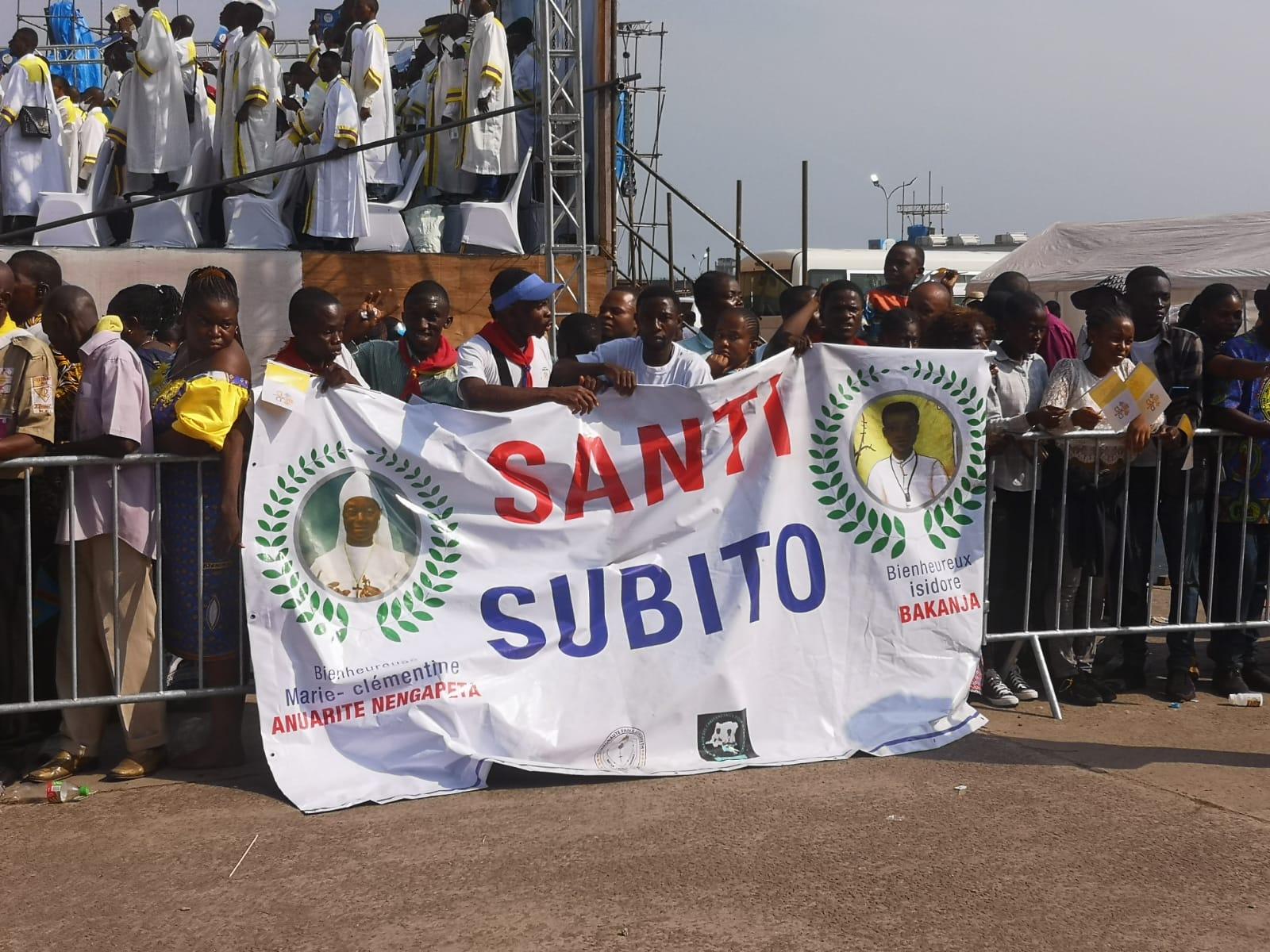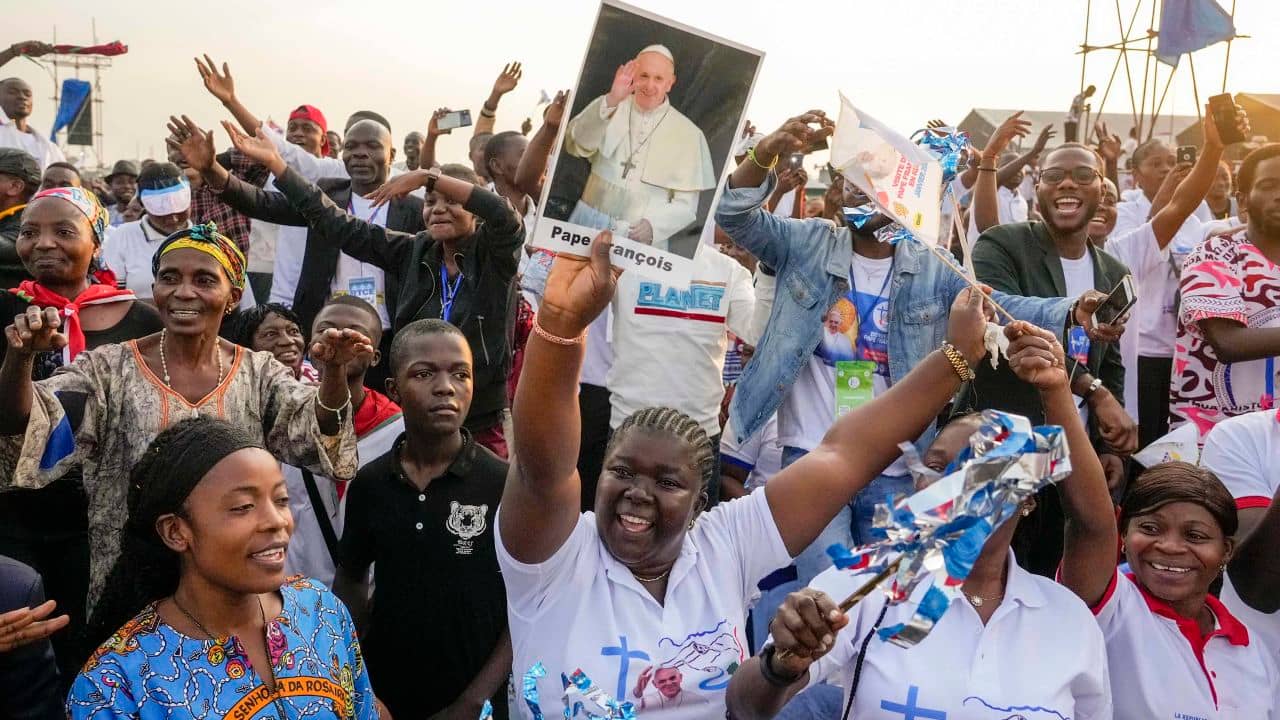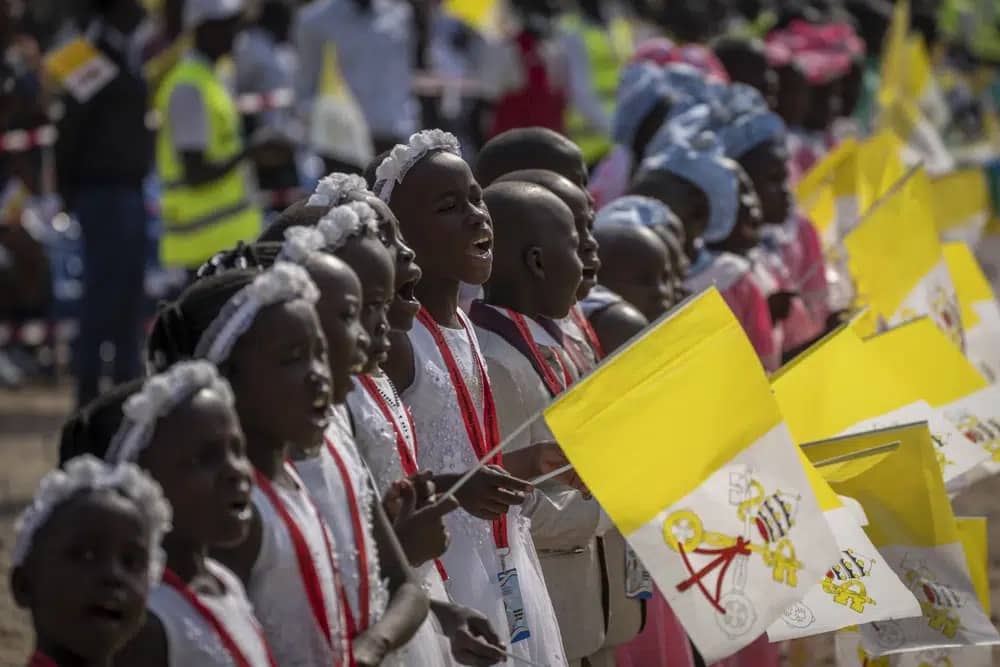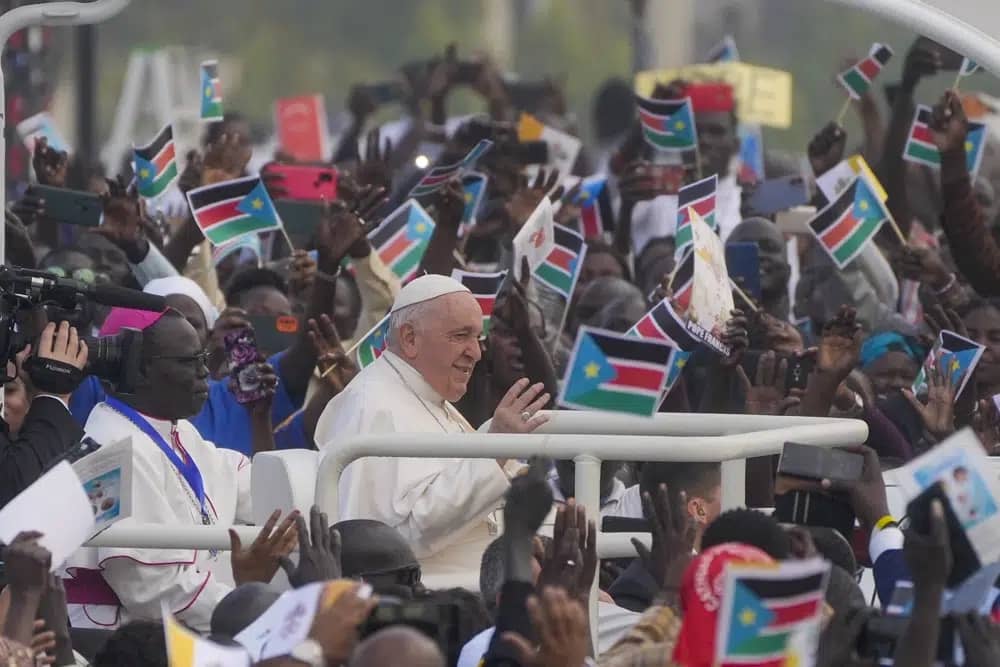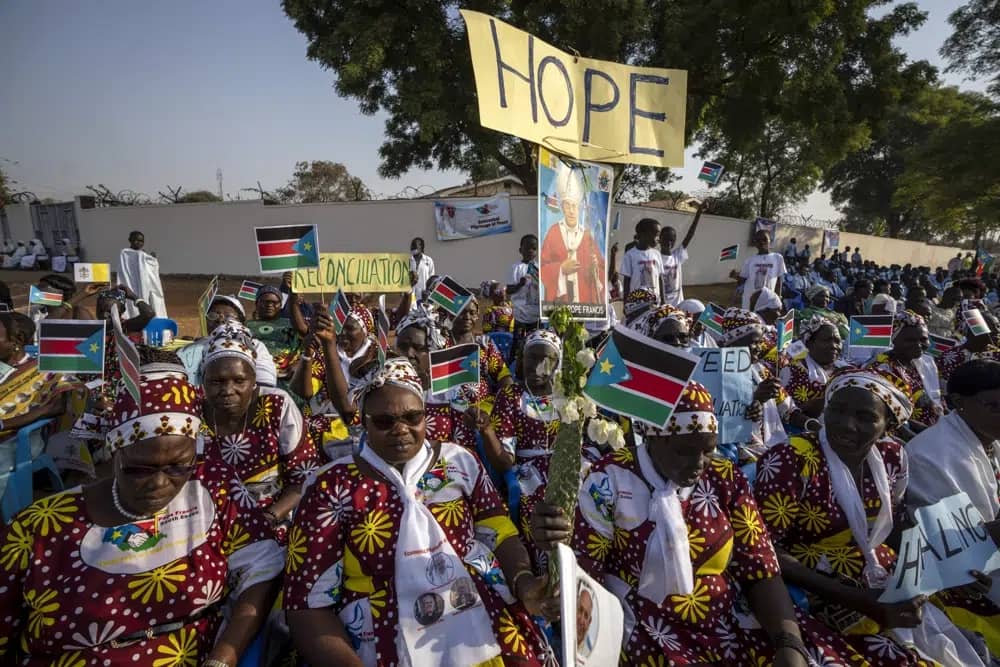
KINSHASA – At Pope Francis’s open-air Mass in Kinshasa Wednesday, among the thousands of faithful who attended was a group carrying banners asking for the immediate canonization of two beloved Congolese martyrs.
Blessed Isidore Bakanja and Blessed Marie-Clémentine Anuarite Nengapeta were beatified by Pope John Paul II in 1994 and 1985, respectively, and are two of the most recognized Congolese saints-in-the-making.
A layman and member of the Boangi tribe, Bakanja was born in Bokendela in what was then known as Zaire in 1887, and grew up working as a bricklayer or on farms.
He converted to Christianity in 1906, after being evangelized by Trappist missionaries, and became extremely devout, using any opportunity he could find to share his faith, quickly gaining him a reputation as a catechist, despite a lack of any formal training.
Eventually, Bakanja left his home village due to the lack of fellow Christians, and obtained work as a domestic on a Belgian rubber plantation in Ikili, where many of the Belgians running the place were atheists, and hated missionaries due to their commitment to fighting for native rights and social justice at a time when many Congolese were essentially enslaved to white colonists.
In April 1909, Bakanja was confronted by agents running his plantation when he asked for leave to return home and his request was denied, with the agents instead criticizing him for urging laborers to pray more than they worked.
Bakanja was ordered to stop speaking of his faith to his fellow workers, and when he refused, he was severely beaten, and the Carmelite scapular he wore was torn from his neck. He was pinned to the ground and flogged with over 100 blows from a whip made of elephant hide that had nails on the end before being chained to a post for 24 hours a day.
At a certain point, when an inspector came to visit the plantation, Bakanja was sent to another village, where he managed to hide in a nearby forest, and eventually dragged himself to the inspector to inform him of what had happened.
Two missionaries took charge of caring for Bakanja, who reportedly received the sacraments devoutly and also received Last Rites before his death on Aug. 15, 1909, with a rosary in his hand and a scapular around his neck, having forgiven his attackers.
He was beatified by St. Pope John Paul II on April 24, 1994.
A Congolese nun who belonged to the Sisters of the Holy Family, Marie-Clémentine, born as Anuarite Nengapeta, was born in 1939 into the Bantu tribe and was educated in the first mission established in her region.
Nengapeta’s mother had each of the children baptized in 1945 but was opposed to Nengapeta’s desire to become a nun, prompting Nengapeta to run away from home to join the convent. She entered the Holy Family Sisters in 1959 and took the name Sister Marie-Clementine.
Just five years later, Congo’s bloody civil war broke out, seeing the rise of rebel groups who were opposed to foreign influence in the Congo area, and often suspected native Congolese men and women religious of cooperating with foreign powers.
The Holy Family convent was attacked in 1964, and the rebel commander of the group leading the assault, Colonel Pierre Olombe, forced himself on Nengapeta and attempted to rape her. She resisted, and was bayoneted and shot, but managed to forgive Olombe before she died.
After the first Congolese civil war ended, Olombe was condemned to death for his crimes and spent five years in prison, but was pardoned by the president. Having been educated by missionaries, he returned to his Catholic faith after his release from prison and became a beggar, seeking forgiveness for what he had done.
Pope John Paul II beatified Nengapeta during his 1985 visit to then-Zaire, and Olombe was present at the Mass, having been found by a local newspaper editor.
By then, Nengapeta’s parents had already forgiven Olombe for his actions, and they sat next to him at their daughter’s beatification Mass, during which John Paul II said that “I myself, in the name of the whole church, I forgive with all my heart.”
At the civil level, the Anuarite Woman of Courage in the D.R.C. Prize was established in 2009 in Nengapeta’s honor, recognizing the contribution of women to the promotion and development of democratic values in the Congo.
At Pope Francis’s Feb. 1 Mass in Kinshasa, banners of Nengapeta and Bakanja adorned the scaffolding of the main altar, and faithful carried their own signs and banners saying, Santi subito, asking for their immediate canonization.
Pope Francis is currently on a Jan. 31-Feb. 5 two-leg visit to Africa that take him first to the Congo and then to South Sudan.
His Mass Wednesday was his first public event in Congo, after meeting with the country’s authorities the night before. Later on Wednesday, the pope will meet with victims of the violent conflict unfolding in eastern Congo as well as members of charities assisting the needy and those displaced by the violence.
Follow Elise Ann Allen on Twitter: @eliseannallen
